US Marines with the 4th Marine Logistics Group are partnering with the engineers of 131 Commando Squadron British Army to participate in exercise Red Dagger in the United States.
“Every year we alternate where the integrated training between the Marines and commandos will take place,” said Maj. Timothy B. McGovney, company commander of exercise Red Dagger, 6th ESB.
“This year happens to be at Fort Indiantown Gap.”
“We are really looking forward to making the most out of the facilities the Marines have here in the United States and particularly the built up urban environment on Fort Indiantown Gap,” said 2nd Lt. David A. Grant, support troop commander, 131 Commando Squadron Royal Engineers.
“It is quite rare compared to what we have in the UK.”
The US Marines and British commando’s have plans to conduct combat pistol training, offensive and defensive military operations on urbanised terrain, or MOUT in US parlance, and a series of vertical and horizontal engineering and welding projects.
The first half of the two week exercise will consist of a series of ranges and tactical instruction.
“We will be teaching rifle marksmanship with the M16’s, M4’s, and M9’s,” said McGovney.
“Tables five and six, which are short range engagements, will be conducted both during the day and then again at night with the night operations and night vision goggles.”
While integrating the US Marines and British commando’s into four platoons, they will give all junior ranking officers a chance to be involved and lead the platoons say the US Marines in a release.
“Two of the platoon commanders are Marine Lieutenants,” said McGovney. “The other two platoons will have British commando equivalents as their platoon commanders.”
Even though the troops do not share the same procedures, equipment, and tactics, they are able to build off of each other’s knowledge and gain respect for each other’s strengths.
“We try to learn the commando’s infantry tactics, their terminology and lingo on how they do things,” said McGovney.
“Even though they haven’t used our weapons systems, we are learning exactly how they would hold their own weapons, what conditions they may use with their weapons, and how they maintain dispersion in a tactical environment with the gear and equipment they have.
These are our allies across the Atlantic and we want to be able to go into theatre with them and be able to operate, whether adjacently, joint, or bilaterally. It’s important to continue this integrated training in order to shoot, move, and communicate together. Both nations have different capabilities and equipment that we can bring to the table to accomplish the same mission.”



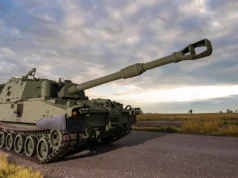


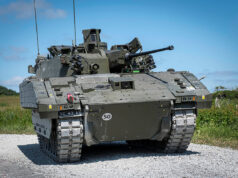
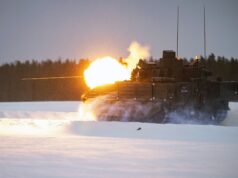
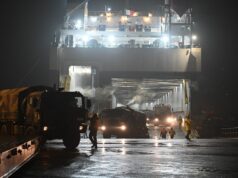
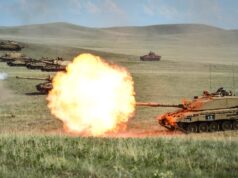




[…] post British Army and US Marines work together on Exercise Red Dagger appeared first on UK Defence […]
For the old sweats:
“For inspection, port arms”